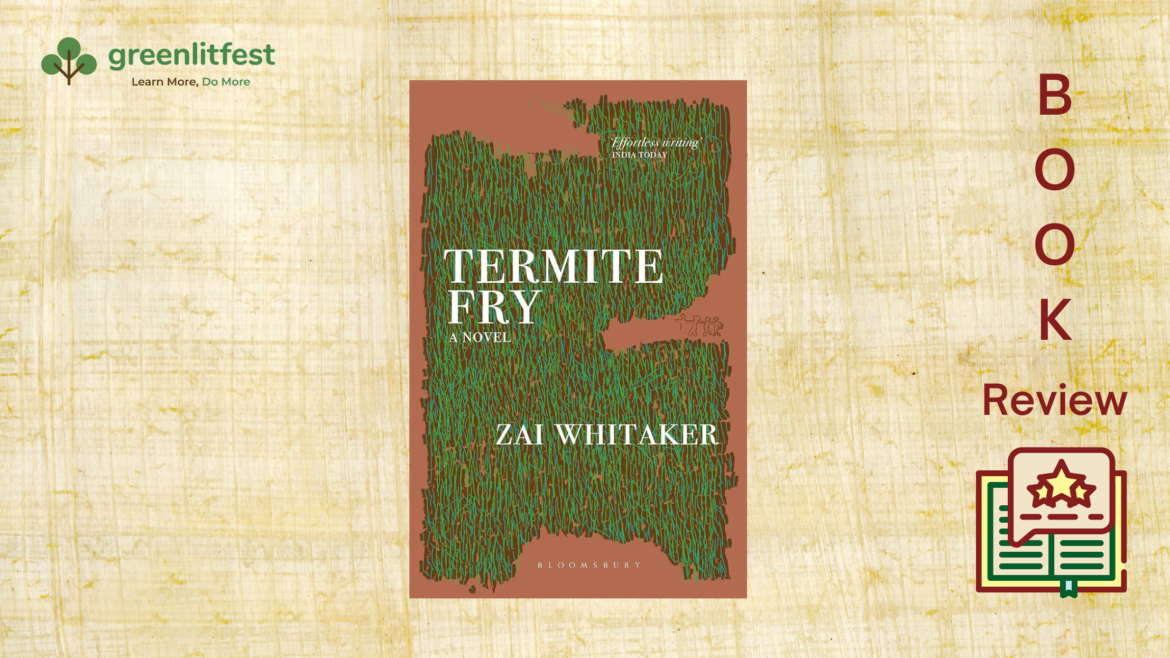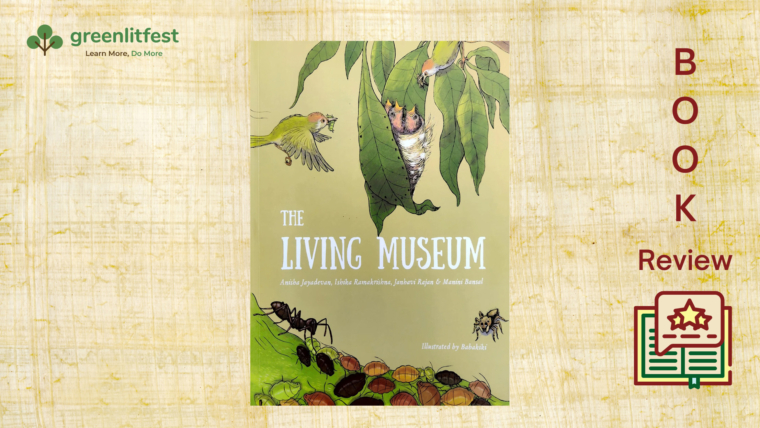Reviewed by Adithi Rao
“The Irular have more money than any other tribe […] The Malai tribe of the Javadi hills had a joke about them: One day the Irular will even get electricity!”
The irony in these words takes the reader headlong into the book Termite Fry, making multiple points at once. The marginalisation of Adivasis. The reality of those who get by without basic amenities and harbour little hope of ever receiving them. And the sense of humour of a people who live close to the earth’s abundance (if not mankind’s) and hence retain the ability to laugh at themselves while laughing at others. Perhaps for this last reason alone, Termite Fry is a story of survival.
Author Zai Whitaker assumes no stand. She narrates with dispassion and sagacity, apportioning neither praise nor blame. It is for the reader to glean the canniness of the protagonists, the inherent wisdom that keeps them alive through the drastically changing circumstances in the story.
Termite Fry follows the life of an Irular family. The son Mari, on the cusp of manhood, struggles to prove himself to himself, while (not) managing to catch a cobra! Thenee, the astute-beyond-her-years daughter, unstoppable motor-mouth, honest to a fault, is undoubtedly the one who turns the story and the fate of her people around.
Thatha, grandfather of Mari and Thenee, expert snake-catcher and wise medicine man, stands out as the undisputed leader of his community. His knowledge of healing practices, and the fact that he hunts without malice or greed, quickly wins him the reader’s admiration. To him, snake-catching is a way of life. He respects his quarry, accepting that it may well be the first to strike. He begrudges it neither its fangs nor venom. Soon, any qualms the reader might harbour about the killing of snakes subside when it becomes evident that there are no victims here. No subjugation, exploitation, or cruelty.
Termite Fry begins in the year 1971, just before the Wildlife (Protection) Act came into force in India. At this point in the story, the Irular trap termites and sell them as fried treats (much the way city people eat Kentucky Fried Chicken these days!). They sell snakeskin to the middlemen, who in turn sell them at enormously inflated prices to the fashion industry. The Irular buy food with their earnings. The middlemen buy gold and build mansions.
Whitaker insightfully explores the deep frustration and humiliation that the Irular experience but rarely voice after each trip to the middleman’s godown. For there, while being divested of the skins, they receive a sum of money that they are informed is perfectly generous. Their inability to decipher numbers on the weighing scale leaves them without the means to prove otherwise.
When, in 1972, a ban is imposed on the killing of snakes, the Irular find themselves summarily out of work. The middlemen and politicians quickly devise new ways to ‘protect’ the tribals and continue to line their own pockets.
The author’s gentle revenge upon the conspirators is to send Thenee to school! There, the little girl learns things that help her shepherd her people onto the road to justice. The story climaxes with the imminent victory of the Irular over their subjugators. It ends before the reader finds the opportunity to gloat. There is room for quiet satisfaction but none for petty glee. Thus, the author steers her reader into a generosity so characteristic of the Irular, who constantly navigate hardship and injustice to emerge with decency, resilience, and wisdom intact.
So yes, Termite Fry is a story of survival. Not just of the body but of spirit too!
Author: Zai Whitaker
Publisher: Bloomsbury India (paperback, published May 2023, Rs 499)
A graduate of Smith College, Massachusetts, Adithi Rao was assistant director on the Hindi film Satya. Her book Boy, Bear was shortlisted for the Green Literature Festival Award, 2022, while Noon Chai and a Story and Candid Tales: India on a Motorcycle are on the Parag Honour List. The Bhootbusters of Himmatnagar and Chuchu Manthu’s Jar of Toffees are among her other works for children. Rao also writes books for adults, and is visiting faculty at the Srishti Manipal Institute of Art, Design & Technology. But in truth, she does all of these things only when she isn’t busy taking long walks, or smuggling treats to the friendly street dogs behind the backs of unfriendly neighbours!
.



